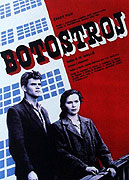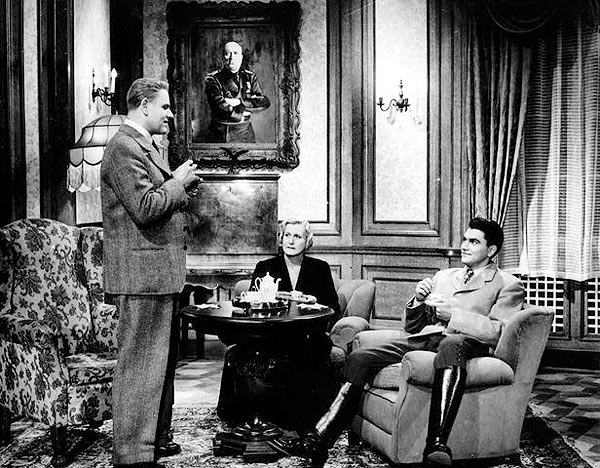Directed by:
K. M. WallóCinematography:
Julius VegrichtCast:
Vítězslav Vejražka, Vilém Besser, Eva Kubešová, Zdeněk Řehoř, Oldřich Vykypěl, Petr Skála, Ota Sklenčka, Marie Vášová, Rudolf Hrušínský, Božena Böhmová (more)Reviews (3)
Yes, many believed it, many built it, and it will certainly enrich your film library if you have a "bizarre" section. In terms of quality, I can't evaluate Giant Shoe-Factory as an inflammatory, lying agitprop; however, as study material, it is absolutely ideal.
()
T. Svatopluk published his book "Botostroj" during the First Republic and it immediately turned in to a court battle with Baťa. In the 1950s, he completed the text, sharpened it ideologically and smoothed it out in all other respects. The film offers an extract of the contemporary vision of the bourgeoisie and the pro-American capitalist in an irresistible form, in which a kind of naive response is mixed of the anti-industrial rhetoric of the 1920s (the Giant Shoe-Factory complex) and a finished ideological whirlwind of stereotypes. Scenes such as the one in the factory owner's saloon, where the bourgeoisie rejoice at the sounds of a nihilistic piano and then dance to the sound of jazz, form a very funny statement about the contemporary vision of the First Republic (or rather persistent ideological efforts for it to be seen this way). Likewise, scenes from working-class life, imbued with the brine and the bucolic well-being of comradeship, offer the contemporary viewer something from the period register of cultural emblems. I don't quite understand the sharp condemnations of ideology - the film can be watched as a fairly transparent and instructive statement about the socialist culture of the 1950s. It does no damage and the phrases and naivety have to hit everyone over the head. Definitely an excellent experience for connoisseurs of socio-realistic bizzareness, and a crystalline probe into the rhetoric of the "Happy Age".
()
In its zealously contrived effort, this is essentially one of the greatest comedies of Czech cinema. This is thanks to the immortal trio of Besser, Kubešová, and Kurandová. However, upon deeper study, it is also a crystalline celebration of capitalism. What should have been denounced as a horrible past under the previous regime is now becoming a natural link to the present. It's a great bit of havoc and also great filmmaking. It’s got breathtaking music and Vítězslav Vejražka in the role of his life. The only thing that really bothers me is the failure to finish the story of Andrés’ Lojska, who deservedly should have been ridiculed and punished. And, of course, the dramaturgy of the scene of Mařka and Antonín's parting, who later wondered why she hadn't left, even though he could clearly see that she had missed the train. I'll never call a sandwich a feast again, but I will consider it a nihilistic jump. There’s nothing I can do to help those who didn't understand the first time around that the film was more about Kerenský than Bata. ;) "Well, this is the American way of life, boys!" In the sequel, the wandering pilgrimage has turned into Infidelity.
()

